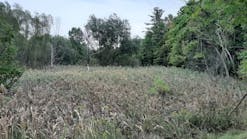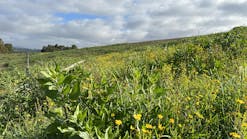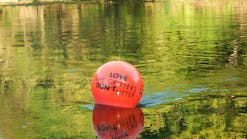ESC Professionals and the Stormwater Crusade
In this election year we’re being treated to a Ping-Pong match between the administration and Congress, with EPA and TMDLs caught in the middle–a situation leading many to believe that water quality is a political or even a regulatory issue. Present-day fun and games notwithstanding, water-quality issues are neither political nor regulatory. Rather, they fall into the category of public health and safety, an emerging reality that elected officials are finding increasingly difficult to ignore as beach and lake closures impact tourist revenues and even send people to the hospital. It’s evident, however, that there are people in high places who don’t feel that the public is ready to deal with the bottom-line concerns such as the eventuality that a major part of our stormwater and sewer infrastructure is in a state of disrepair or rendered inadequate in the face of the mounting burdens placed on them by increased (and increasing) development.
Little wonder our elected officials choke at the thought of upgrading or replacing a large portion of these utilities over the next 20-30 years, since the costs will be stupendous no matter how boldly or timidly we approach the task. The idea of redoing or reinventing what we’ve done in the past is, to me, not merely ludicrous but suicidal. The challenge before us lies in coming to grips with the realities of sustainability across the broad spectrum of human action. Here, harmony and balance–along with the ability to see beyond the obvious and look at all our social systems to see how well they’re adapted to the heavy demands about to be placed on them–are as critical to success as are concrete and steel. The word I have in mind here is “aesthetics” in its fundamental sense.
Perhaps because it is often misused or even abused, the term aesthetics has lost a lot of its vitality and currency in dealing with very real issues and things, but at the risk of sounding quaint I’m going to suggest that our aesthetic judgement is grounded in much the same place as our moral and religious sense. Far from fashion and the lure of short-term success, it taps into things our blood has learned over eons. To say that something is “aesthetically pleasing” is not to say that it is “beautiful” in a contemporary sense (though it may be), but that it exhibits a “rightness” that draws on intuition outside the components or structure of the immediate situation. Recognition of rightness is one thing; applying it is quite another, and that’s where we come in.
A Call to Arms
I’m going to suggest that all of us who are experienced in ESC matters–most especially those who carry the CPESC designation–have an obligation to take a leadership role in helping the public and its elected officials take sound and decisive steps to meet a challenge that, while it will be characterized as a “water-quality” problem, in fact goes to the very heart of how we manage all our resources: water, air, soil, and the increasing number of contaminants we introduce into them.
Why us.and especially CPESCs? Partly because what we do for a living allows us to see the relationships among these resources, but just as importantly because of our status as “experts” in the eyes of those around us. Because of our knowledge and experience, people will listen to us, and that alone is a powerful tool. But it is equally as detrimental a force if we stand aside. For a local stormwater workshop to take place without a single ESC professional or CPESC in attendance makes no sense, but it happens.
If as in the past we look to the ends of the pipes–or to the pipes themselves–to find solutions to stormwater challenges, we’ll lose the battle. But how many of our neighbors understand that simple fact, much less the factors involved? That’s where our knowledge, experience, and aesthetic judgment come into play. These skills will be crucial in allowing us to hurdle barriers erected in response to needs and goals of a bygone era, and all you have to do is look around to see in what short supply these skills really are.
Janice Kaspersen
Janice Kaspersen is the former editor of Erosion Control and Stormwater magazines.






